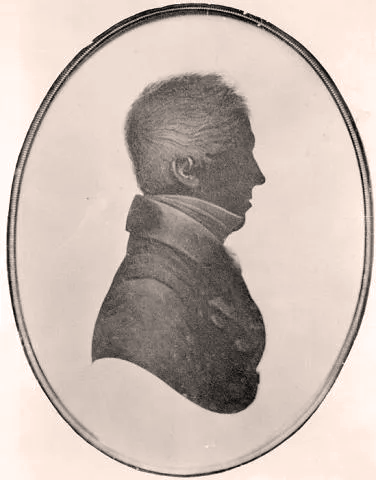Biography: Peter Robinson
Peter Robinson
Peter Robinson, a notable Canadian politician and colonial administrator, played a significant role in shaping the early history of Ontario, Canada through his involvement in the Peter Robinson Emigration. Born on November 1, 1785, in New Brunswick, Robinson was the son of Christopher Robinson, a Loyalist who had served in the American Revolutionary War. Robinson’s early life was marked by the upheavals faced by Loyalist families, moving from New Brunswick to Upper Canada where they settled in the York (Toronto) area.
Robinson began his public service career as a militia officer during the War of 1812, where he served with distinction. Following the war, he entered politics and was elected to the Legislative Assembly of Upper Canada in 1817, representing the riding of York & Simcoe. His political career was characterized by a commitment to the development and settlement of Upper Canada.
In 1823, Robinson was entrusted with a significant task by the British government, specifically tasked by Robert J. Wilmot-Horton Under-Secretary of the Colonies, to supervise the emigration of impoverished Irish families to Upper Canada. The first group, consisting of around 500 settlers, was settled successfully, prompting the government to approve a larger emigration scheme in 1825. This project, known as the Peter Robinson Emigration, aimed to alleviate the severe poverty in Ireland while also promoting the settlement of Canada.
In May 1825, nine ships sailed from Cobh, Ireland, carrying over 2,000 Irish emigrants. Robinson’s meticulous planning and organization were crucial to the success of this venture. The settlers endured a challenging transatlantic journey before arriving in the wilderness of what is now Peterborough, Ontario. Robinson’s leadership ensured that the emigrants received the necessary supplies, land grants, and support to establish new lives in Canada. This emigration scheme played a pivotal role in the development of Peterborough and surrounding areas, significantly increasing the population and fostering agricultural development.
Robinson’s efforts extended beyond just the logistics of the emigration. He was deeply involved in the welfare of the settlers, advocating for their needs and ensuring they were integrated into the community. His work earned him respect and recognition, not only from the settlers themselves but also from the broader Canadian society.
Beyond the emigration efforts, Robinson continued to serve in various capacities within the government, including as the Commissioner of Crown Lands. His contributions to the development of Upper Canada were numerous, and his legacy is still remembered in the regions he helped to settle.
Peter Robinson passed away on July 8, 1838, but his impact on Canadian history, particularly through the successful settlement of Irish immigrants, remains a significant part of his legacy. His work is a testament to the challenges and triumphs of early Canadian immigration and settlement policies.
Sources:
- Wendy Cameron, “ROBINSON, PETER,” in Dictionary of Canadian Biography, vol. 7, University of Toronto/Université Laval, 2003. Link to full biography.
Click the button below to read a detailed biography on Peter Robinson written by Wendy Cameron and located online on the Dictionary of Canadian Biographies website.
